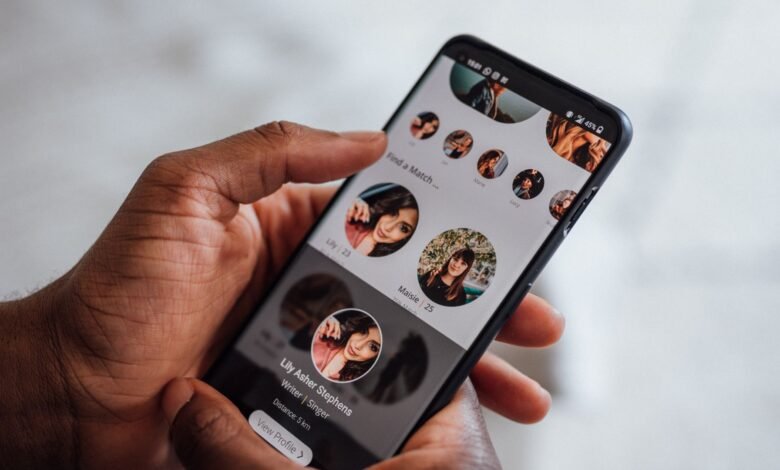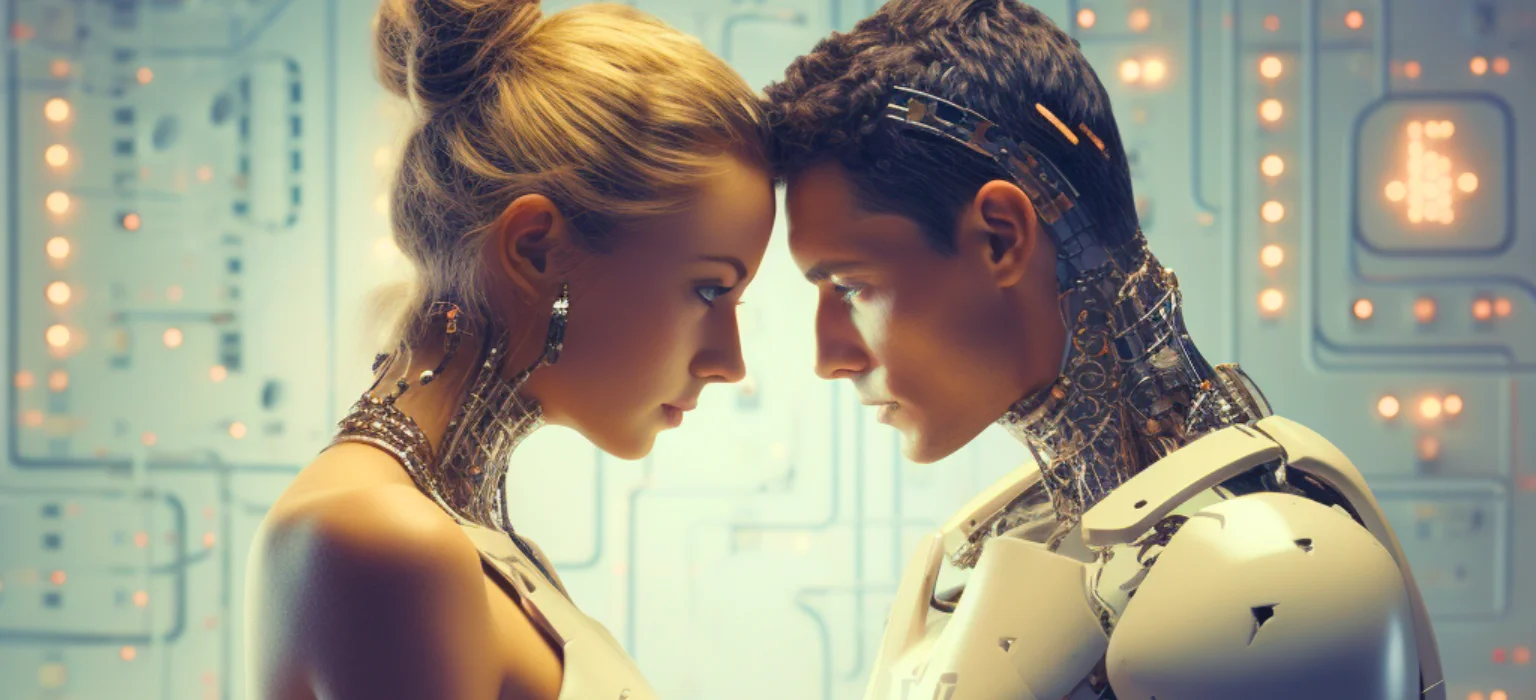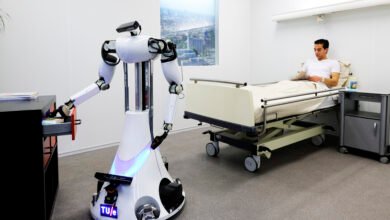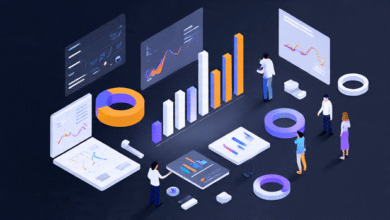
The landscape of modern romance has undergone a revolutionary transformation with the integration of artificial intelligence and machine learning technologies into dating platforms. AI Dating Apps have emerged as powerful tools that are fundamentally reshaping how people connect, interact, and find love in the digital age. From sophisticated matchmaking algorithms to personalized user experiences, these innovative platforms are leveraging cutting-edge technology to address the age-old challenge of finding compatible romantic partners.
Major dating platforms like Tinder, Bumble, and Hinge are incorporating AI features to provide real-time feedback and improve user engagement through natural language processing and machine learning. The online dating industry is projected to reach $4.5 billion by 2025, largely driven by AI advancements. This remarkable growth reflects not only the increasing acceptance of digital romance but also the tangible benefits that artificial intelligence brings to the dating experience.
AI-powered dating platforms utilize complex algorithms to analyze user behavior patterns, preferences, and compatibility factors that traditional matching systems often overlook. These systems can process vast amounts of data to identify potential matches with unprecedented accuracy, moving beyond surface-level characteristics to understand deeper personality traits and relationship goals. Modern dating apps have evolved into personalized matchmaking services that reduce ghosting and increase meaningful connections, while also incorporating immersive technologies like virtual and augmented reality for enhanced user experiences.
The implications of this technological revolution extend far beyond simple convenience improvements. Machine learning in AI Dating Apps is creating more meaningful connections by understanding user intentions, predicting compatibility, and even helping users craft better profiles and conversations. As we navigate through 2025 and beyond, these AI-driven innovations are not merely changing how we swipe and match – they’re fundamentally transforming the entire paradigm of how romantic relationships begin and develop in our increasingly connected world.
How AI-Powered Matchmaking Algorithms Work
Understanding Machine Learning in Dating Contexts
Machine learning algorithms form the backbone of modern AI Dating Apps, utilizing sophisticated computational methods to analyze user data and predict compatibility. These systems employ both supervised and unsupervised learning techniques to process dating profiles and user interactions. Unlike traditional rule-based matching systems that rely on basic demographic filters, AI-powered matchmaking algorithms can identify subtle patterns in user behavior, communication styles, and relationship preferences.
The core functionality begins with data collection, where the system gathers information from user profiles, swiping patterns, messaging behavior, and interaction duration. Natural language processing (NLP) algorithms analyze profile descriptions, conversation content, and even emoji usage to understand personality traits and communication preferences. This comprehensive data analysis enables the system to create detailed user personas that go far beyond age, location, and interests.
Deep learning models then process this information through neural networks that can identify complex relationships between different user attributes. These algorithms continuously learn and adapt, improving their accuracy with each user interaction. The result is a dynamic matching system that becomes more precise over time, understanding not just what users say they want, but what they actually respond to in practice.
Collaborative Filtering and Recommendation Systems
AI Dating Apps algorithms often employ collaborative filtering techniques, similar to those used by streaming platforms and e-commerce sites. This approach identifies users with similar preferences and suggests matches based on the successful connections of comparable users. Recommender systems for dating apps use deep learning to enhance matching accuracy, creating a more sophisticated approach to finding compatible partners.
The system creates user clusters based on behavioral patterns, preferences, and successful match history. When determining potential matches for a specific user, the algorithm examines the preferences and successful connections of users within the same cluster. This method helps identify compatible partners who might not appear obvious through traditional demographic matching but share deeper compatibility indicators.
Hybrid recommendation systems combine collaborative filtering with content-based filtering, analyzing both user similarities and individual profile characteristics. This dual approach ensures that matches are not only based on what similar users liked but also on the specific attributes and preferences of the individual user seeking connections.
The Evolution of AI Dating Apps From Simple Swipes to Smart Matches
Traditional Matching vs. AI-Enhanced Systems
The transformation from basic online dating platforms to sophisticated AI Dating Apps represents one of the most significant technological leaps in digital romance. Early dating websites relied primarily on static profile information and basic filtering options, requiring users to manually search through hundreds of profiles based on simple criteria like age, location, and interests. This approach often led to the overwhelming choice paradox and inefficient matching processes.
Dating apps have evolved enormously in algorithmic complexity over recent years, transforming from simple matching systems to sophisticated AI-driven platforms. Modern AI-powered dating platforms utilize dynamic learning systems that adapt in real-time to user behavior, preferences, and interaction patterns. These systems can identify compatibility indicators that humans might miss, such as subtle communication patterns, response timing, and engagement levels with different types of content.
The shift from swipe-based mechanics to intelligent curation has fundamentally changed the user experience. While traditional apps presented random profiles within basic parameters, AI Dating Apps now curate personalized feeds based on sophisticated behavioral analysis. This evolution has resulted in higher match quality, reduced time investment for users, and more meaningful connections overall.
Integration of Advanced Technologies
Contemporary dating app technology extends far beyond basic matching algorithms, incorporating multiple AI disciplines to enhance user experience. Computer vision algorithms analyze profile photos to verify authenticity and suggest optimal image selections. Sentiment analysis tools evaluate message tone and emotional content to facilitate better communication between matches.
The integration of virtual reality (VR) and augmented reality (AR) technologies has enabled immersive virtual dates, allowing couples to connect in virtual environments before meeting in person. These technologies create new possibilities for long-distance relationships and provide safer ways for users to establish connections before physical meetings.
Voice recognition and analysis technologies are also emerging as significant features in AI Dating Apps. Audio-first dating apps focus on voice as the primary connection method, utilizing AI to analyze vocal patterns, tone, and speech characteristics to assess compatibility. This approach adds another dimension to matching algorithms, recognizing that vocal chemistry often plays a crucial role in romantic attraction.
Key AI Technologies Transforming Modern Dating

Natural Language Processing and Communication Enhancement
Natural Language Processing has become a cornerstone technology in modern AI Dating Apps, revolutionizing how users communicate and express themselves on platforms. NLP algorithms analyze user interactions, adapt responses, and provide real-time feedback to improve engagement. These systems can understand context, emotion, and intent behind messages, enabling more meaningful conversations between potential matches.
NLP algorithms analyze conversation patterns to identify compatibility indicators that might not be apparent through profile information alone. They assess communication styles, shared interests mentioned in conversations, humor compatibility, and even conflict resolution approaches. This deep analysis helps the system understand relationship dynamics before they fully develop, leading to more successful long-term connections.
Conversation optimization features powered by NLP help users craft more engaging messages by suggesting conversation starters, identifying optimal response times, and even warning against potentially problematic message content. Features like Hinge’s Prompt Feedback provide immediate AI-powered guidance on profile creation and messaging, helping users present their best selves while maintaining authenticity.
Predictive Analytics and Behavioral Modeling
Predictive analytics in AI Dating Apps utilize historical user data to forecast relationship success probability and optimize matching decisions. These systems analyze patterns from successful relationships within the platform to identify key indicators of long-term compatibility. Machine learning models process factors such as communication frequency, response patterns, shared activity preferences, and interaction duration to predict relationship longevity.
Behavioral modeling algorithms create detailed psychological profiles based on user interactions within the app. These models can predict user preferences before they’re explicitly stated, identify potential dealbreakers, and even suggest optimal timing for different relationship milestones. The system learns from user feedback, continuously refining its understanding of individual preferences and relationship dynamics.
Churn prediction models help identify when users might become inactive or leave the platform, enabling proactive intervention through improved matching or feature recommendations. This technology ensures users remain engaged and satisfied with their experience, ultimately leading to better outcomes for all platform participants.
Computer Vision and Image Analysis
Computer vision technology has revolutionized photo verification and analysis in AI Dating Apps technology. Advanced algorithms can detect fake profiles and stolen images with 99% accuracy, significantly improving platform security and user trust. These systems analyze facial features, background consistency, and image metadata to verify profile authenticity.
Photo optimization algorithms analyze user photos to suggest improvements in lighting, composition, and presentation. Some systems can even predict which photos will generate the most positive responses based on analysis of successful profiles with similar demographic characteristics. This technology helps users present themselves more attractively while maintaining authenticity.
Facial recognition and analysis algorithms can identify personality traits and emotional expressions from profile photos, adding another layer to compatibility assessment. While controversial, these systems claim to identify characteristics like confidence, openness, and emotional stability through facial analysis, though their accuracy and ethical implications remain subjects of ongoing debate.
Benefits of AI in Modern Dating Applications
Enhanced Matching Accuracy and Compatibility Assessment
AI-powered matchmaking has dramatically improved the accuracy of compatibility predictions compared to traditional dating methods. AI Dating Apps platforms like Iris Dating match users who are most likely to find each other attractive, utilizing sophisticated algorithms that analyze multiple compatibility dimensions simultaneously. These systems process thousands of data points to identify matches with genuine long-term potential rather than superficial attraction alone.
The precision of machine learning algorithms enables dating platforms to understand complex relationship dynamics that human matchmakers might miss. These systems can identify complementary personality traits, shared value systems, and compatible life goals by analyzing communication patterns, profile content, and user behavior. The result is a significant reduction in mismatched connections and increased satisfaction among users.
Compatibility scoring systems provide users with transparent insights into why certain matches were suggested, helping them make more informed decisions about potential partners. This transparency builds trust in the platform while educating users about relationship dynamics and personal preferences they might not have previously recognized.
Personalized User Experiences and Recommendations
AI dating apps create highly personalized experiences that adapt to individual user preferences, behaviors, and feedback over time. The system learns from each interaction, continuously refining its understanding of what each user finds attractive and engaging. This personalization extends beyond matching to include customized app interfaces, content recommendations, and communication suggestions.
Personalized dating app algorithms can predict optimal timing for user engagement, suggesting when to send messages, update profiles, or increase activity based on individual usage patterns and success rates. This intelligent timing optimization helps users maximize their chances of meaningful connections while avoiding platform fatigue or overwhelming potential matches.
Content curation algorithms present users with relevant articles, tips, and guidance based on their dating goals and current relationship stage. This educational component helps users develop better dating skills and relationship awareness, contributing to more successful outcomes both on and off the platform.
Improved Safety and Fraud Detection
AI-powered security systems have significantly enhanced user safety on AI Dating Apps platforms through advanced fraud detection and behavioral analysis. Machine learning algorithms flag offensive content and automatically block users who spread inappropriate material, creating safer environments for genuine users seeking connections.
Behavioral analysis algorithms can identify potentially dangerous or predatory behavior patterns before they escalate to harmful interactions. These systems monitor communication patterns, profile inconsistencies, and user reports to proactively identify and remove problematic users. This proactive approach protects vulnerable users and maintains platform integrity.
Identity verification systems utilizing AI ensure that users are who they claim to be, reducing catfishing and other deceptive practices. Biometric verification, document analysis, and cross-platform identity confirmation create multiple layers of security that build trust among users while maintaining privacy standards.
Popular AI Dating Apps and Their Unique Features
Leading Market Players and Their AI Implementations
The AI Dating Apps market features several innovative platforms, each utilizing artificial intelligence in distinct ways to enhance user experience. Apps like Replika, Kindroid, and Character.AI offer AI companions that allow users to create their ideal romantic partners, representing a new frontier in digital relationships and AI-human interaction.
Iris Dating stands out for its sophisticated visual preference learning system, which analyzes user photo selection patterns to understand aesthetic preferences and predict mutual attraction. The platform’s algorithm learns from swipe behavior to identify faces and features that users find appealing, creating more targeted matches based on visual compatibility.
Major platforms like Hinge, Grindr, Tinder, and Bumble have integrated AI features to enhance their existing services. Hinge’s Prompt Feedback system provides real-time profile optimization suggestions, while Bumble focuses on AI-powered conversation starters and compatibility insights. These implementations demonstrate how established platforms are evolving to incorporate AI without completely restructuring their core user experience.
Specialized AI Features and Capabilities
YourMove AI exemplifies the integration of conversational AI in dating platforms, offering real-time communication coaching and response optimization. The platform uses natural language processing to analyze user interactions and provide immediate feedback to improve engagement quality. This approach helps users develop better communication skills while maintaining authentic personality expression.
Virtual dating capabilities have emerged as significant differentiators among AI dating platforms. Advanced platforms offer immersive virtual dates using VR and AR technologies, allowing users to interact in simulated environments ranging from coffee shops to exotic destinations. These features have become particularly valuable for long-distance relationships and users who prefer virtual interaction before physical meetings.
Predictive messaging systems analyze conversation flow and suggest optimal response timing, content, and tone based on successful interaction patterns. These AI assistants can help users navigate difficult conversations, maintain engagement, and avoid common communication pitfalls that lead to ghosting or connection failure.
Niche and Specialized AI Dating Platforms
The diversification of AI dating apps has led to specialized platforms targeting specific demographics and interests. Professional-focused platforms utilize AI to match users based on career compatibility, work-life balance preferences, and professional goals. These systems analyze LinkedIn profiles, career trajectories, and industry connections to facilitate relationships between compatible professionals.
Cultural and religious compatibility platforms employ AI to understand complex cultural nuances, religious practices, and family value systems. These algorithms can assess compatibility across different cultural backgrounds while respecting individual beliefs and preferences, facilitating meaningful connections in diverse communities.
Lifestyle-specific AI dating platforms cater to particular interests such as fitness, travel, or hobbies. These specialized systems analyze activity data, social media interactions, and lifestyle preferences to create highly targeted matches based on shared passions and life experiences.
Challenges and Limitations of AI Dating Technology
Privacy and Data Security Concerns
The integration of AI in dating platforms raises significant privacy concerns as these systems require extensive personal data collection to function effectively. AI dating apps gather information ranging from basic demographics to detailed behavioral patterns, communication styles, and even biometric data. This comprehensive data collection creates valuable user profiles but also presents substantial privacy risks if not properly protected.
A growing number of singles find that AI makes dating more complicated, particularly regarding data transparency and user control over personal information. Users often lack a clear understanding of how their data is being processed, stored, and potentially shared with third parties. This opacity can lead to mistrust and reluctance to fully engage with AI-powered features.
Data security vulnerabilities in dating platforms can have particularly severe consequences due to the intimate nature of the information collected. Breaches could expose sensitive personal details, private communications, and behavioral patterns that users shared in confidence. The stakes are higher than typical data breaches because the information could be used for blackmail, identity theft, or other forms of personal harm.
Algorithmic Bias and Discrimination Issues
Algorithmic bias represents a significant challenge in AI-powered matchmaking systems, potentially perpetuating or amplifying existing social prejudices and discrimination patterns. Machine learning algorithms trained on historical data may inherit and reinforce societal biases related to race, age, physical appearance, socioeconomic status, and other characteristics.
These biases can manifest in various ways, from systematically showing certain demographic groups fewer high-quality matches to reinforcing beauty standards that exclude diverse representations of attractiveness. AI dating algorithms might inadvertently create echo chambers that limit cross-cultural or diverse connections, reducing opportunities for users to expand their social and romantic horizons.
Fairness in AI matching becomes particularly complex when algorithms attempt to predict user preferences based on past behavior. While this personalization improves user satisfaction, it may also limit exposure to potential matches who fall outside established preference patterns, potentially preventing users from discovering unexpected but meaningful connections.
Over-reliance on Technology and Authenticity Concerns
The increasing sophistication of AI dating apps raises concerns about users becoming overly dependent on algorithmic suggestions and losing confidence in their natural judgment about potential partners. When algorithms handle most decision-making processes, users may struggle to develop their own relationship skills and intuition about compatibility.
Authenticity challenges emerge when AI assists with profile creation, message composition, and conversation management. While these tools can help users present themselves more effectively, they may also create a disconnect between online personas and real personalities. The question arises: are users falling for the person or the AI-optimized version of that person?
Reduced human agency in the matching process can lead to passive dating behavior where users rely entirely on algorithmic suggestions rather than actively seeking connections. This dependency might limit personal growth in relationship skills and reduce the serendipitous encounters that often lead to meaningful relationships outside digital platforms.
The Future of AI-Driven Romance and Relationships

Emerging Technologies and Innovations
The future landscape of AI dating apps will likely incorporate even more sophisticated technologies currently in development. Advanced biometric analysis may include voice pattern recognition, micro-expression analysis, and even pheromone compatibility assessment through specialized hardware integration. These technologies could provide unprecedented insights into biological and psychological compatibility factors.
Quantum computing applications in matchmaking could revolutionize the scale and complexity of compatibility analysis, processing vast datasets of relationship outcomes to identify patterns invisible to current systems. This computational power could enable real-time analysis of global dating trends and predict relationship success with remarkable accuracy.
Augmented reality integration will likely expand beyond virtual dates to include real-world overlay systems that provide compatibility information and conversation suggestions during in-person interactions. These systems could help users navigate social situations more effectively while maintaining natural interaction flow.
Predictions for Industry Evolution
The dating app industry is expected to become increasingly specialized and personalized, with AI enabling hyper-targeted platforms for specific communities, interests, and relationship goals. Machine learning advancements will likely enable platforms to predict not just initial compatibility but also long-term relationship satisfaction and potential challenges.
Integration with IoT devices and wearable technology could provide continuous compatibility monitoring through health data, activity patterns, and physiological responses. This ambient data collection could offer insights into relationship dynamics without requiring active user input, though privacy concerns would need careful consideration.
AI relationship coaching may evolve into comprehensive digital therapy and counseling services, helping couples navigate challenges and maintain healthy relationships long after initial matching. These systems could provide personalized guidance based on individual relationship patterns and proven therapeutic techniques.
Societal Implications and Relationship Dynamics
The widespread adoption of AI-powered dating platforms will likely reshape societal expectations about relationships and partner selection. As algorithms become more sophisticated at predicting compatibility, social pressure may increase to find algorithmically “optimal” matches rather than following personal intuition or emotional connection.
Generational differences in technology adoption may create distinct dating cultures, with younger users fully embracing AI assistance while older generations prefer more traditional approaches. This divergence could impact how different age groups interact and form relationships across demographic boundaries.
Cultural adaptation of AI dating technology will vary globally, with different societies integrating these tools according to their values, traditions, and social structures. The challenge will be developing AI systems that respect cultural diversity while providing effective matchmaking across different social contexts.
Best Practices for Using AI Dating Apps Effectively
Optimizing Your Profile for AI Algorithms
Success with AI dating apps begins with understanding how machine learning algorithms analyze and categorize user profiles. These systems evaluate multiple data points simultaneously, including photo quality, profile completeness, writing style, and keyword usage. Users should focus on creating comprehensive profiles that provide sufficient data for accurate algorithmic analysis while maintaining authentic self-representation.
Profile optimization for AI systems involves strategic keyword usage that reflects genuine interests and values rather than attempting to game the algorithm. Authentic language patterns and specific details about hobbies, goals, and preferences help algorithms understand personality traits and match users with compatible partners. Avoid generic descriptions that provide little meaningful information for algorithmic processing.
Photo selection significantly impacts AI analysis, as computer vision algorithms assess image quality, authenticity, and visual appeal. Include diverse photos that showcase different aspects of personality and lifestyle while ensuring high image quality and clear facial visibility. Avoid heavily filtered or misleading images that could negatively impact algorithmic trust scores.
Balancing AI Assistance with Personal Judgment
While AI-powered matchmaking provides valuable insights and suggestions, successful online dating requires balancing algorithmic recommendations with personal intuition and judgment. Use AI suggestions as starting points rather than definitive decisions, allowing room for unexpected connections that might not align perfectly with algorithmic predictions.
Maintain awareness of personal preferences and deal-breakers independent of AI recommendations. Algorithms learn from user behavior, but they cannot account for all nuances of personal attraction and compatibility. Trust your instincts about potential matches while remaining open to algorithmic suggestions that challenge preconceived notions about ideal partners.
Active engagement with the platform helps improve AI accuracy over time. Provide feedback through rating systems, update preferences regularly, and engage meaningfully with suggested matches. This interaction data helps algorithms better understand individual preferences and improve future recommendations.
Privacy Protection and Data Management
Protecting personal information while using AI dating apps requires understanding data collection practices and implementing appropriate privacy measures. Review privacy policies carefully and adjust sharing settings to limit unnecessary data exposure while maintaining platform functionality.
Data minimization strategies involve sharing only essential information required for effective matching while avoiding oversharing sensitive personal details that could be misused if platform security is compromised. Be particularly cautious about sharing financial information, workplace details, or family information that could enable identity theft or stalking.
Regular privacy audits of your dating app profiles and associated social media accounts can help identify potential security vulnerabilities. Remove outdated information, update privacy settings, and monitor for unauthorized access or suspicious activity that could indicate data breaches or account compromise.
More Read: How to Network Effectively at AI and Machine Learning Events
Conclusion
The integration of artificial intelligence and machine learning into dating applications represents a paradigmatic shift in how modern relationships begin and develop. AI dating apps have evolved from simple matching tools into sophisticated platforms that analyze compatibility across multiple dimensions, enhance communication between users, and provide personalized experiences that significantly improve the likelihood of meaningful connections.
With the online dating industry projected to reach $4.5 billion by 2025, the influence of AI on romantic relationships will only continue to grow. While challenges around privacy, algorithmic bias, and authenticity concerns require ongoing attention, the benefits of enhanced matching accuracy, improved safety features, and personalized user experiences demonstrate the transformative potential of AI in helping people find lasting love.
As these technologies continue advancing, users who understand how to leverage AI assistance while maintaining personal agency and authentic self-representation will be best positioned to succeed in the evolving landscape of digital romance. The future of AI-powered dating promises even more sophisticated technologies that could revolutionize relationship formation, but success will always depend on the fundamental human elements of genuine connection, emotional intelligence, and mutual respect that no algorithm can fully replicate.











